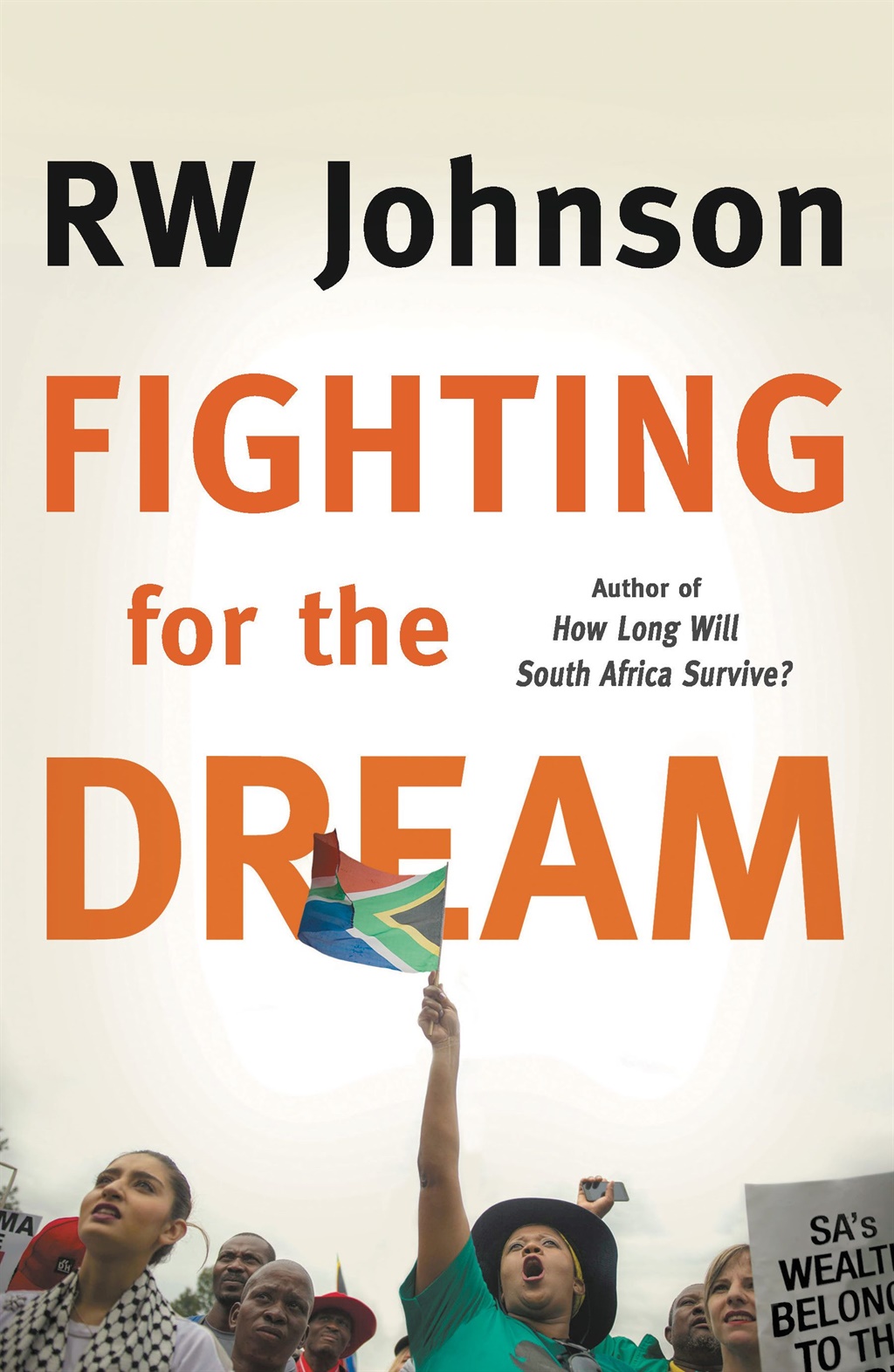
South Africa's integration into the international economy is far too deep and pervasive for the country to be able to escape the effects of globalisation. Indeed, most of its citizens hungrily devour the new technology that links them into that globalised world. They use their cellphones to transmit money to other countries, they watch American TV, they buy cheap Chinese clothes and shoes, they happily use social media. They are, in that sense, already global citizens.
What is not imaginable is that South Africa can continue to exist behind the fence of its own peculiar job-reservation laws when everywhere else in that global market such restrictions do not exist. It's not just the billions of Indians, Chinese and Indonesians offering their labour in that global market – there will soon be another billion Africans doing the same. So no matter how hard it is to envisage this 'shock therapy', one has to realise that it is inevitable anyway in the long run. Indeed, even if the present labour laws are not scrapped, that long run may be quite short.
The culture of victimhood is so strong in South Africa that it is quite normal for African politicians to claim that they have suffered unique poverty and deprivation, even that they have endured 'slavery'. This is, of course, simply not true. South Africa is a middle-income developing country. Many hundreds of millions in Asia and elsewhere in Africa are far poorer than the average South African. Apartheid was a dreadful, inhumane and degrading system, but it was a long way short of slavery. West and East Africans, who really did endure slavery and the loss of family members to slavers, would be able to explain how much worse a plight that was than anything suffered under apartheid.
Indeed, not a few East Africans were brought to South Africa as slaves and suffered under that system while the black South Africans around them did not. (Ironically, the West and East Africans who throng to South Africa today have little or no sense of victimhood and frequently comment on how curious it is that black South Africans exhibit this trait so strongly, together with an accompanying sense of entitlement.)
Nonetheless, that culture of victimhood is so strongly entrenched that it is politically impossible for any politician to advocate lower wages. In that sense, to write as I have above is to break a very large taboo, and I would not expect what I say to be popular, or even acceptable. Economists Nicoli Nattrass and Jeremy Seekings have made the argument for lower wages in the textile industry, where only plants that have disregarded the centrally bargained minimum wage have been able to survive, but they are quick to say that their arguments cannot be generalised. But they can be, and should be. Indeed, globalisation will soon make such a development inevitable whether one likes it or not.
Two objections would be raised to this. First, it would be said that by lowering wages one was increasing the rate of exploitation. The answer to that is yes, indeed. But, as the Marxist economist Joan Robinson remarked long ago, 'the misery of being exploited by capitalists is nothing compared to the misery of not being exploited at all'. If in doubt, ask South Africa's nearly ten million unemployed. Second, local employers long ago realised that migrant workers from Zambia, Malawi, Zimbabwe, and so forth, work far harder and better than do many South Africans. There would be a danger that labour law liberalisation might merely result in greater inflows and employment of migrants, leaving a large, sullen and xenophobic local proletariat. That is not tenable, and stricter immigration controls would be required.
Market liberalisation
The liberalisation of the labour market would need to be accompanied by a general market liberalisation, including far more competition in product markets – breaking up the cartels that dominate South Africa. Probably all the SOEs should be privatised, and preferably split up so as to create competition.
For example, there is little point in merely privatising the Airports Company of South Africa; one needs to allow all the airports to compete independently with each other. We would need to retain a national electricity grid and an integrated national system of water distribution, but the power producers and local water boards should be privatised. In a situation of 'natural' local monopolies (for example, Umgeni Water in KwaZulu-Natal), the operating contract could be re-awarded every so many years, subject to public review and competing bids. As we saw earlier, this is not a matter of free-market ideology but simply a recognition that state ownership is a very bad idea in independent Africa.
The same principles should be followed in general throughout the society. What the last quarter-century should have taught one and all is that during the early stages of primary accumulation there is effectively no hope of avoiding massive corruption and mismanagement in any bureaucracy unless one can harness market disciplines on one's side.
That is to say, the concerted effort currently undertaken by Cyril Ramaphosa and his minister of public enterprises, Pravin Gordhan, to clean up the SOEs, although extremely well intentioned, is probably doomed to fail. First, because it is highly unlikely that it will be effective – the opportunities for corruption are simply too great – and, second, because the minute Gordhan's 'great purge' of the corrupt and incompetent from the SOEs has been completed, all the same processes will begin again.
On top of this, the track record suggests that it will be impossible to stop continued government interference in the SOEs. This has already meant that Eskom has had ten different CEOs and six different boards in the last ten years. No business can possibly work on that basis. The only way to make the SOEs work is if all the workers and managers know that if they fail to make a profit their jobs are at risk. Similarly, in a private company managers who engage in corruption will rapidly get fired – or their company will go bust. Either way, the risks of corruption are dramatically reduced.
I hasten to add that I am not a free-market ideologue; indeed, I have spent much of my life voting for social democratic parties. It is purely a question of what works or does not work under present conditions. And, of course, a free-market solution does not mean that one necessarily avoids all corruption and mismanagement: think of the (free market) minibus-taxi industry, plagued by incessant taxi wars, involvement with drug traffickers, its refusal to obey traffic rules or pay traffic fines, and the irresponsible and dangerous behaviour of the drivers, producing a hideous casualty rate.
Quite clearly, under present conditions even free-market competition needs iron-fisted policing and regulation, including a tough inspectorate that punishes policemen who take bribes from taxi bosses. This regulation, policing and policing-the-policemen ought really to be almost the state's only job. It is quite enough. The same market principles need to be extended even into health and education, for everything suggests that under South Africa's present conditions these sectors cannot work well under state control.
It may be objected that this would make bankers and big businessmen too powerful – and that is probably true. But at least one could be sure that all enterprises had to serve their customers first or die. One could also be sure that the overpayment of managers and the featherbedding of industries with enormously inflated staff numbers, both a key feature of SOEs today, would cease automatically.
And, in any case, look at the situation produced by a quarter-century of ANC rule. The SOEs plead, in vain, for loans from bankers. The president implores (his word) private businessmen to invest and not to make anyone redundant – in vain. The government pleads with the big car manufacturers to double their workforces (again in vain). The government goes in fear of the rating agencies and the bond markets.
There is no doubt on which side of the equation power lies. For the sheer fecklessness of ANC rule – in a word, the lack of a proper ruling class – has hollowed out the state, which is less and less capable as time goes on. On the other hand, in a thriving and prosperous society one businessman or banker, more or less, doesn't make a lot of difference. It is the investment strike caused by the ANC that has made the investor king.
Having a national objective
At the moment, South Africans don't know where they are going. Notionally, the country is moving towards a National Democratic Revolution (NDR), but who can believe that? Are we really supposed to believe that the corrupt arms deal, the killing of over 300 000 African mothers and children in an Aids genocide, almost ten years of presidential looting under Jacob Zuma and nearly ten million unemployed have all been purposeful steps towards that objective? It has been more like the career of a drunken sailor. But part of the large move towards liberalisation would be a redefinition of what the country is aiming at.
* This is an extract from Fighting for the Dream by RW Johnson, published by Jonathan Ball Publishers.




 Publications
Publications
 Partners
Partners











